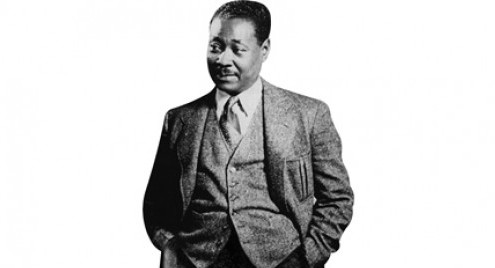Claude McKay, born on the 15th of September 1889 and died on the 22nd of May 1948 in Chicago, Illinois, a famous Jamaican writer and poet, was grown in Nairne Castle near James Hill, Clarendon, Jamaica. He was the youngest child of Thomas Francis McKay and Hannah Ann Elizabeth Edwards, well-to-do farmers who had enough property to qualify to vote.
McKay started basic school at four years old, at the church that he attended. At the tender age of seven, he was sent to live with his oldest brother, Uriah Theodore, a teacher, to be given the best education available. While living with this brother, McKay became an avid reader of classical and British literature, as well as philosophy, science and theology. He started writing poetry at the age of 10. McKay left for the U.S. in 1912 to attend Booker T.
Washington’s Tuskegee Institute. McKay was shocked by the intense racism he encountered when he arrived in Charleston, South Carolina, where many public facilities were segregated, which inspired him to write more poetry. In 1928, McKay published his most famous novel, Home to Harlem, which won the Harmon Gold Award for Literature.
In 1977, the government of Jamaica named Claude McKay the national poet and posthumously awarded him the Order of Jamaica for his contribution to literature. A Jamaican-American who was born Festus Claudius McKay, the youngest child for his parents, but despite superior academic performance, in 1914 McKay decided he did not want to be an agronomist and moved to New York, where he married his childhood sweetheart Eulalie Lewars. From November 1922 to June 1923, he visited the Soviet Union and attended the fourth congress of the Communist International in Moscow.
McKay resided in England from 1919 through 1921, and then returned to the United States. While in England, he was employed by the British socialist journal, Workers’ Dreadnought, and published a book of verse, spring in New Hampshire, which was released in an expanded version in the United States in 1922. There, he met many leading Bolsheviks including Leon Trotsky, Nikolai Bukharin and Karl Radek.

McKay also authored a collection of short stories, Ginger town (1932), and two autobiographical books, A Long Way from Home (1937) and Harlem: Negro Metropolis (1940). His book of collected poems, Selected Poems (1953), and his second autobiography, My Green Hills of Jamaica (1979), were published posthumously.
McKay had moved to Morocco in 1930, but his financial situation forced him to return to the United States in 1934. He gained acceptance to the Federal Writers Project in 1936 and completed his autobiography, A Long Way from Home, in 1937. Although no longer sympathetic toward communism, he remained a socialist, publishing essays and articles in The Nation, the New Leader, and the New York Amsterdam News.
There was freeness and a bright new beauty in those contributions, pictorial and literary that thrilled. And altogether, in their entirety, they were implicit of a penetrating social criticism which did not in the least overshadow their novel and sheer artistry.
Today, his poems and books are used in schools especially in Jamaica; he has remained a very popular author and is well known by many. His legacy lives on.